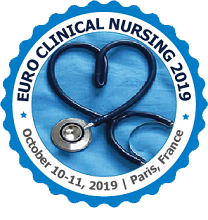
Yi- Ling Chiang
Lo-Hsu Medical Foundation, Lotong Poh-Ai Hospital, Taiwan
Title: An emergency nursing experience of a patient involved in the puyuma train derailment accident
Biography
Biography: Yi- Ling Chiang
Abstract
Train derailment accidents can be serious and devastating. In addition to the physical injuries they may cause, repetitive mental images of the disaster can lead to post-traumatic stress disorder and other long-lasting traumatic mental health conditions. Physical and/or mental trauma may affect the patient's previous lifestyle, including the inability to work, either temporarily or permanently, and role adjustments. This article describes the nursing experience of a 44-year-old woman who was involved in the Puyuma train derailment accident of 2018. She was separated from her family due to the chaos and arrived in the hospital alone. In addition to the bodily injuries infl icted, the fear and anxiety that arose from the train accident were reviewed. The author used Gordon’s 11-item functional health assessment as a tool between 19:10 pm and 23:54 pm on October 23, 2018 to assess the patient. Through physical examinations, observations, interviews and direct nursing care evaluations, the patient's physical pain, fear and potential posttraumatic stress disorder were identiï¬ ed. Explanations of the procedures and treatment were given to the patient during the initial stage of care to provide a sense of environment security. Wound treatment was explained in a simple step by step process. Medication and attention diversion were used to relieve acute pain and ameliorate the patient's anxiety. All discussions of her injuries and feelings about the derailment were met with a positive attitude and empathy. Integrated teamwork and multimedia resources were utilized to provide wound management and pain relief techniques. Familycentered psychological care was incorporated in an effort to restore balance of the mind, body and soul. Making use of this train derailment experience may assist nursing care in the smooth management of physical injuries and stabilize the fl uctuating moods during the emergency period.

